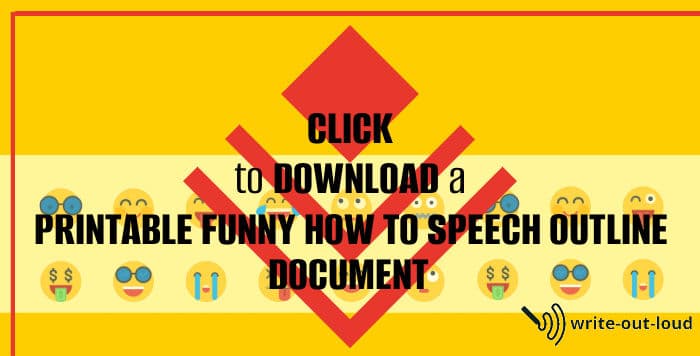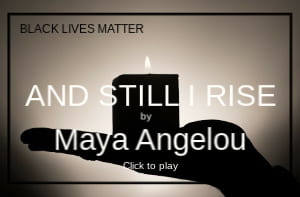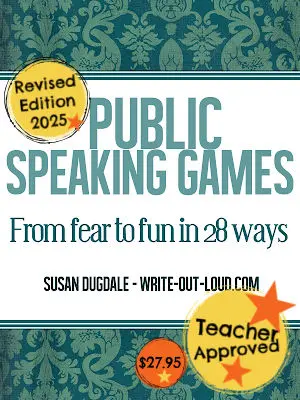- HOME ›
- Speech topics ›
- 188 funny how-to speech topics
Funny how-to speech topics
188 funny topics for a demonstration speech
By: Susan Dugdale
Give us some funny how-to speech topics! None of your bore them to snoring speech ideas. We want funny, chucklesome ones. Ones to make them smile.☺
And you've got them!
What's on this page?
188 funny how-to speech ideas split into 7 groups
- How to yarn bomb with aplomb, and 25 more topic ideas
- How to dance like no one is watching, and 27 other suggestions
- How to enter hobby horse riding competitions and win, and 27 more
- How to make pumpkins feel OK about being carved for Halloween, and 25 more funny how to speech ideas
- How to be a hero to your children, and 24 more
- How to interpret the decor of a room. What does it say about a person? and 25 more speech topic suggestions
- How to speak fluent emoji, and 27 more funny how to speech ideas
Plus, resources to help craft your speech
- Defining 'funny' and how to choose a topic
- Printable funny how-to speech outline document
- Example of a completed funny how-to speech outline
- Links to more demonstration speech resources
- Links to onsite resources for working with humor

- How to yarn bomb with aplomb
- How to mirror write
- How to flatter a person effectively
- How to pretend you're a statue
- How to convince your cat you speak meow
- How to speak and sound intelligent despite knowing very little about the subject you’re talking about
- How to survive a visit to the dentist
- How to dumpster dive – the top tips on how to find real treasure
- How to know if you're a genius
- How to master the art of topiary – turn your hedge into a row of trumpeting elephants today!
- How to meet and interview a famous person
- How to successfully cram for an exam
- How to work the room – the fine art of mixing and mingling
- How to recognize a true friend at first glance
- How to deal with invasion of mice in your pantry
- How to convince your car it's a Transformer
- How to amuse yourself while you are stuck in a traffic jam
- How to amuse your co-workers with secret pranks
- How to interpret your parent's body language - when to stay, when to run and when to ask for something.
- How to create the perfect piece of modern art
- How to win a creative dog grooming competition
- How to master the art of silly walking
- How to appear interested when you are most definitely not
- How, when and why to pretend you're an alien ambassador from another planet
- How to know which is the correct item of cutlery to use – a guide
- How to tell if your house is haunted
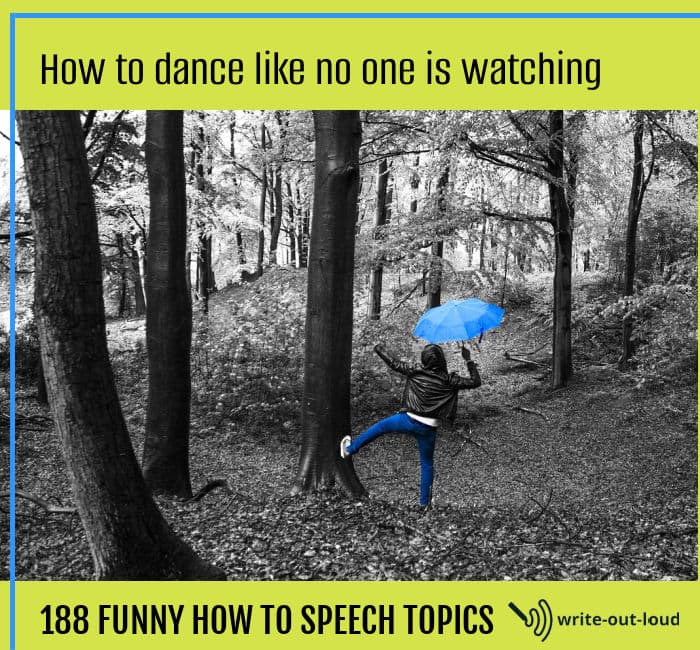
- How to audition successfully for a role as a zombie – Your top tips: how to dress, how to make yourself up, how to move, how to speak, what to say...
- How to dance like no one's watching – Get them up and moving. Teach some hilariously exaggerated dance moves.
- How to train your pet rock – Give a humorous guide on pet rock obedience training.
- How to make the perfect peanut butter & jelly sandwich – Share absurdly detailed steps for this simple snack.
- How to thoroughly annoy your siblings – Offer tongue-in-cheek suggestions for the fine art of sibling irritation.
- How to speak fluent gibberish – Provide tips on creating your own nonsensical language. Have your audience try them out.
- How to fake a good night's sleep – Humorous tips for looking well-rested when you're not.
- How to be the world's worst secret agent – Share comically ineffective espionage techniques.
- How to survive a boring meeting – Offer satirical advice on enduring tedious gatherings.
- How to master the art of procrastination - With the best of the worst humorous excuses.
- How to know if someone is telling you a lie
- How to become a respected member of the fashion police
- How to get a date with person of your dreams
- How to create extraordinary and fantastical looks with make up
- How to guarantee failing a driving test (with comical mistakes).
- How to create the perfect bedhead hairstyle (including outrageous hair tricks).
- How to be a cat whisperer (demonstrating absurd cat communication).
- How to become a couch potato (exaggerating the art of lounging).
- How to be the best of the worst karaoke singer: Demonstrate hilarious vocal blunders and off-key singing for a good laugh.
- How to survive a haunted house tour: Share humorous tips on navigating a spooky attraction with bravery.
- How to look busy at work: Provide amusing techniques for appearing productive while actually doing nothing.
- How to fake being a chef: Share comical tips on making restaurant-quality meals with minimal effort.
- How to train your pet bird to talk and perform cunning tricks.
- How to master the art of parallel parking (and make it look easy).
- How to embarrass your kids in 5 easy steps: Offer funny and light-hearted advice on embarrassing your children with love.
- How to win an argument with your pet: Share a tongue-in-cheek guide to persuading your furry friends to see things your way.
- How to speak "teenager": Translate popular slang and expressions used by today's youth.
- How to take a perfect selfie: share funny tips on posing, lighting, and editing for Instagram-worthy photos.

- How to enter hobby horse riding competitions and win
- How to moo like a cow
- How to speak fluent boomer
- How to choose a character to cosplay
- How to cunningly divert attention away from yourself
- How to organize a karaoke night
- How to fail at DIY – examples – the woeful stories of plumbing disasters, glue that stuck fingers, or worse, together, tie-dye T-shirts that ran in wash turning everything pink...
- How to interpret your daily horoscope
- How to convince your friends to do your homework for you
- How to tease your siblings
- How to teach your dog new tricks
- How to become professional at doing nothing
- How to dress to impress
- How, and why, to start a flash mob – the ultimate in distractions
- How to tell if someone is really in love with you
- How to look confident and self-assured in all situations
- How to get other people to pay for your meal or your drinks when you’re out with them
- How to make a meal out of leftovers
- How to tell jokes really well
- How to use a cardboard box creatively – turn it into a child’s playhouse, a racing car...
- How to get your parents to agree to extending your curfew
- How to survive a long-haul economy class flight
- How to avoid having to accept adult responsibilities
- How to pretend you're a superhero in disguise
- How to convincingly explain to your parents why the car got dented
- How to talk yourself into learning to walk a high wire
- How to recycle (regift) unwanted Christmas presents without causing offence
- How to find and release your inner rock star

- How to make pumpkins feel OK about being carved for Halloween
- How to survive a road trip with children – (Are we there yet?)
- How to build a great pillow fort under the table
- How to eavesdrop successfully on other people’s conversations
- How to fake it until you make it
- How to survive giving a children’s tea party
- How to disagree with your boss without getting fired
- How to plagiarize an essay and not get caught
- How to cheat creatively on your tests
- How to remember people’s names and how to cover when you don't
- How to become a gossip columnist
- How to make your houseplants feel like royalty
- How to become famous for telling terrible puns
- How to successfully fake being a psychic fortune teller
- How to get a child to eat their vegetables
- How to successfully photo-bomb or news raid
- How to know if you're living in the wrong era
- How to teach your Grandparents how to use their cellphones well
- How to make the best funny faces to amuse a child
- How to become a secret agent
- How to impress by speaking in pirate lingo
- How to tell the best dad jokes
- How to annoy your GPS navigation system
- How to become a business class time traveler
- How to communicate using telepathy
- How to win friends and influence people

- How to be a hero for your children
- How to dress your dog stylishly
- How to fake a foreign accent for fun
- How to make friends with your lawn mower, your washing machine or some other household appliance.
- How to become a stand-up comedian
- How to become a professional thumb wrestler
- How to embarrass yourself – true stories
- How to win a pillow fight championship
- How to start a food fight for fun
- How to start a fashion craze
- How to throw a convincing temper tantrum – lessons I learned from my two year old.
- How to train your dog to fetch the remote
- How to strategically ask for favours and get them
- How to be the life of the party
- How to recover from publicly embarrassing yourself
- How to annoy your parents with bad jokes
- How to be a mind reader
- How to interpret a person’s character through observing their table manners
- How to convince your teacher someone really did steal your assignment
- How to develop a hobby or interest that will make you fascinating to others
- How to teach your little sister (or brother) to blow bubbles
- How to survive a zombie apocalypse
- How to eat spaghetti politely
- How to make sure you inherit another person’s wealth
- How to lie with confidence

- How to interpret the decor of a room. What does it say about a person?
- How to hide your chocolate stash from kids
- How to be the world's worst tourist
- How to survive an awkward visit to relatives
- How to effectively avoid being asked to do chores
- How to speak ‘dog’ fluently – woof, woof, arf...
- How to annoy your roommate without getting caught
- How to turn your mother into an Influencer
- How to be the best worst dancer at the party
- How to make your pet Instagram famous
- How to and why to develop a poker face at family gatherings
- How to over analyse a text message – what did she/he/they really mean?
- How to interpret the shapes of the clouds in the sky? What do they foretell?
- How to find proof of genius in your child’s drawings
- How to create the perfect excuse note
- How to blame shift with subtlety and elegance
- How to make friends with your bank account
- How to use mime to get out of difficult situations
- How to master and perfect the art of awkward silences
- How to survive a conversation with a telemarketer
- How to write a perfect love letter
- How to know how the parents of a new born are getting along - the top 5 signs of fatigue!
- How to win a staring contest with a stranger
- How, when and why to fake a British accent
- How to use a brick creatively: 10 alternative things to do with a brick – use it as a window prop, a door stop, a weight, pretend it’s a phone
- How to avoid making eye contact with a person you don’t want to talk to

- How to survive a binge-watching marathon
- How to master the fine art of sarcasm: a crash course for beginners
- How to master the art of napping wherever you are
- How to speak fluent Emoji
- How to get out of unwanted conversations
- How to bath a puppy
- How to give medicine to a cat (without getting scratched to pieces.)
- How to win an argument with a rose bush
- How to write a self-help book for compulsive collectors of curious things: shoes for left feet, nail parings, ball point pens, salt and pepper shakers...
- How to live through a date with a vampire
- How to watch a horror movie by yourself without freaking out
- How to become the next supermodel
- How to fail a job interview spectacularly
- How to take the perfect selfie with your pet
- How to behave like a star in a soap opera
- How to win at rock-paper-scissors every time
- How to start a dance party in an elevator
- How to learn to ride a bike no-hands
- How to get through a day without wi-fi
- How to speak fluent toddler
- How to become a superhero's sidekick
- How to have a meaningful conversation with a tinfoil hat wearer
- How to interpret the way a person walks. What does it tell you about their character?
- How to translate a Shakespearean soliloquy into Valley Girl
- How to become a ghost hunter
- How to fake being a hypnotist
- How to play fantastic air guitar
- How to teach yourself to change your opinion about someone or something– to go from loathing to loving
Defining 'funny' and how to choose a topic
Funny doesn't necessarily mean laughing out loud, helpless giggling or crying because something is just so, so hilarious.
Funny can also be quiet smiles and a chuckle of appreciation.
There are opportunities for all shapes and sizes of it here from pure slapstick through to ridiculous absurdism.
As you move through the topic suggestions look for possibilities to play with, and extend, strengths you may already have.
Do you move well? What about a topic like, "How to dance like no one's watching"? You could teach some exaggerated dance moves and get your audience up and moving.
Or "How to master the art of silly walking". That too offers audience involvement opportunities.
Can you do straight face? Or dead pan? Yes? What about a totally daft topic that you take utterly seriously? One like: "How to take a perfect selfie: share funny tips on posing, lighting, and editing for Instagram-worthy photos."
Or "How to make pumpkins feel OK about being carved for Halloween". I can see the pumpkins being counselled, spoken to gently, being listened to... ☺
Before you make a final decision, think carefully about your audience. Who are they? What's appropriate for them? What would make them smile? Whatever you choose, I hope you have fun!
Printable funny how to speech outline document
To make planning your speech easier, here's a printable funny how to speech outline document (pdf). To download it click on the image below. (It will open in a new window.)
Example of a funny how to speech outline
How to write perfect excuse notes
My example speech outline, below, follows the pattern I've used in the printable. The heading for each section has been bolded.
Title of speech: How to write perfect excuse notes.
General purpose: to entertain or amuse while giving a 'soft skill'*, 'show and tell' or demonstration speech.
Specific purpose: to demonstrate, with humor, how to write an effective excuse note.
Central idea (thesis statement): to show how putting some thought and time into preparing an excuse note can lessen the fallout or damage caused by not doing whatever it was that you were expected to.
For example: come to school or work, come at the required time, hand in an assignment, or arrive with the right equipment and wearing the right clothes.
*Soft skills -also known as power skills, common skills, essential skills, or core skills, are skills applicable to all professions. For more this Wikipedia definition and explanation.
Speech introduction - what's your hook?
There are quite a number of ways to hook an audience - to make them sit up and want to listen from moment you open your mouth. These include using a startling statistic, asking a rhetorical question, sharing a compelling story, using an apt quotation or showing an interesting visual aid.
Which attention grabber will you use?
Attention grabber(s)
Rhetorical question:
How effective do you think these excuse notes were?
3 examples of notes:
- "Jimmy will be absent from school on Mondays until further notice. Adding an extra day to the weekend will lower his stress levels, as well as ours. We believe mental health is important."
- "Stephanie had to stay at home yesterday because she had to wash and dry her hair."
- "Brook's kid brother barfed on her book. We couldn't clean it and had to throw it out."
The next section is about establishing your authority or right to talk on your chosen subject. Why should your audience listen to you? How much do know about the topic? What experience have you had?
Credibility builders:
I taught teenagers for many years, and these are examples of excuse notes that were given to me.
I got literally 1000s and some were way more effective than others.
The majority were very ordinary: with nothing distinguishing them at all. They served their purpose. I filed and forgot them.
However, sometimes parents, caregivers or the student unintentionally excelled themselves. Their very funny notes were meant to be taken seriously no matter how cliched, far-fetched or ludicrous they were to me.
There is a definite limit to the number of grandparents, cousins, aunts, uncles, best friends... whose final act of kindness and consideration is to conveniently and suddenly die, how many times a person can be smitten by a horrible stomachache, a throbbing headache, or the dog can eat the homework.
Preview:
So, what is a perfect excuse note? One that is believable. One that is concise, respectful in tone, and shows a responsible attitude: i.e. an understanding of the possible impact of not turning homework in, missing classes or not coming into work. It has also been proofread to pick up lapses in logic, spelling or grammatical errors, is formatted well and handed over prior to being prompted for it.
This, dear audience, is what you're going to find out more about today: how to craft an effective excuse note. One addressing why it was you failed to submit an assignment on time.
Or one to help smooth over an absence, whether caused by genuinely unforeseen circumstances out of your personal control or by the simple desire to 'bunk off' - to not be where you are supposed to be, just because. And let's face it, who hasn't been tempted to do that occasionally?
An excuse note prepared well helps maintain mutual trust and respect while hopefully minimizing any possible negative consequences. Knowing how to write one is a valuable essential skill.
The next section, a transition, takes us into the body of speech. The body is the heart or main part of the speech where you fulfill its primary purpose: to show or teach your audience how to write perfect excuse notes - step by step.
(The remaining parts/steps of this outline are mostly in note form. They'll need additional fleshing out to make them into a followable, interesting, funny speech.)
Transition: Are you ready? Let's get on with it.
Body of speech
Step One: Know your audience
Understanding who you are addressing in your note is essential if you want the note to work for you, rather than against you. Example.
Sub-steps:
- What does the person receiving the note need from you?
- a believable reason for either your absence, or not handing in your assignment
- an assurance that whatever duties etc. you were supposed to fulfil and didn't will be made up for.
Examples. - Depending on the circumstances, a doctor's certificate, to verify what you say in your note.
- What do they expect in an excuse note from you?
- honesty, accuracy, respect, understanding of the possible implications of the event on them. - When do they need the note?
- as soon as possible.
Transition:
Step Two: What NOT to do
The majority of funny excuse notes are funny by accident. Their writers did not intend them to be amusing. They knew no better. Literally.
Here's a list of common pitfalls to avoid.
Sub-steps:
- Oversharing - Whoever is on the receiving end of your note does not need to know all the intimate-up-close-and-personal details of what happened. Or who said what to who about it and how. What's needed is a concise, clear summary or account.
Example of over sharing and the same example rewritten concisely. - Vagueness - using language that avoids naming or giving the reason necessitating an excuse note. Examples of vagueness - due to unforeseen circumstances, events beyond my control
- Fake information - deliberately providing false information for whatever reason. Once lying is found out it can be difficult to rebuild trust.
- Informality - blurring boundaries between positions, for example, student and teacher, parent of student and teacher, employee and employer, by using colloquial language that is generally used between friends and acquaintances.
It shows a lack of understanding about the nature of the relationship.
Examples - Hey bro, etc., ... - Lack of proof-reading - reading over to pick up typos, words that have been left out by accident, inconsistencies - details that don't logically line up as they should, missing information - signature, contact details, dates etc.
Examples. - Poor presentation/formatting - the note should be easily read. Choose a clean clear font, black ink, white paper and space it properly.
Examples showing poor v good.
Transition: While it might be amusing to get inadequately prepared excuse notes the consequences for the writer may not be so funny. To dodge that possibility, let's prepare two good excuse notes which you can use as guides.
Step Three: Crafting the perfect note
Prepare example excuse notes:
- from a parent to a teacher to cover their child not handing in an assignment
- from an employee to an employer to cover unexpected absence from work
Sub-steps:
- Gathering necessary information - name of the person the note is to go, reason for the note: illness, family emergency, severe weather event (flooding, snowstorm...), transport breakdown, appointment with medical specialist, lawyer, dentist..., specific dates it covers, contact details
- Outline of what will/has been done to minimize impact - delegation of tasks, rescheduling of meetings, arrangement made to catch up on completing the assignment...
- Content, Tone and Proofreading/formatting check
Is the note clear and concise? Does it cover everything it should? Is the tone of the language appropriate? Are there any spelling errors, word omissions or lapses in logic? Has the note been formatted well?
Example of note from parent to teacher
Example of note from employee to employer
Transition: The final results of this process will never be as ridiculously silly as some of the reasons I've been given or the ones we can find online: "Someone stole all my shoes." or "My dog is depressed, and this morning he finally summoned the courage to tell me about it. I have to stay at home to support him.".
We won't be rolling in the aisles reading them. However, they'll achieve much more than a laugh at some else's expense will ever do.
Conclusion: Wrapping it up
Part one: summary
Writing a perfect excuse note is an essential and learnable skill.
Part two: benefit recall
A well-crafted excuse note demonstrates professionalism, maturity, and the ability to take responsibility. It shows respect, creates continuity, and builds mutual trust.
Part three: call to action
The next time you need to write an excuse note make sure you go above and beyond the joke!
Other resources for how-to speeches
For more about demonstration or how-to speeches:
- Demonstration speeches step-by-step | how to give a successful 'how-to' or 'show and tell' demonstrative speech.
- Demonstration speech sample outline - an example that follows the logical step-by-step process that is essential for any "how to" type of speech.
For demonstration speech topic ideas - 100s of suggestions, including 50 on soft skills - how to say 'no' politely, how to handle a temper tantrum, how to be gracious in defeat...
Other resources for working with humor
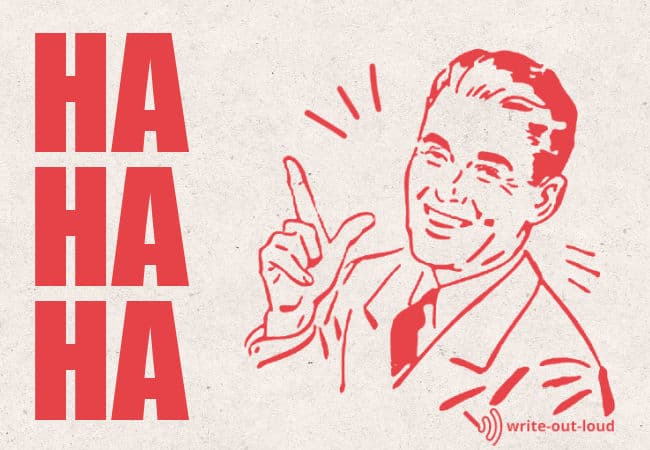
Humor is notoriously tricky to get right because one person's funny is another person's not. And when we do get it wrong, it can be very difficult to recover and win back the audience's attention.
For more:
- How to use humor effectively in speeches - 6 tips with examples. What gets a laugh? What doesn't and, why?
- Laughter as strategy - The 7 pillars of humor for impactful business presentations (Article by Damien Gauthier - Impactful Speaking)
